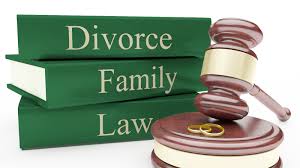Things to Look for in a Divorce Attorney
Choosing the right divorce attorney is difficult. Thousands of lawyers will claim they can help you successfully dissolve your marriage, but how do you know which one is the right fit? In this blog, we will discuss 5 things you should look at before hiring a divorce lawyer.
Credibility: The divorce lawyer you choose should be credible in the eyes of the law, meaning the lawyer should be in good standing with the State Bar Associations. Make sure to do your research on an attorney’s disciplinary record, and verify that he/she is in good standing with the state and federal governments. This search can be accomplished free of charge on most state bar websites.
Focus: Divorce lawyers represent a very specific clientele, and much of their work involves negotiating prior to entering a courtroom. An attorney who has spent the majority of his/her career practicing a different area of law – such as employment or corporate law – may not have the same insight as one who has been devoted to divorce for many years.
Experience: You shouldn’t have to worry about whether or not your lawyer is experienced enough to handle your divorce. As such, it’s important to choose wisely. For example, an attorney who just graduated from law school may not exercise the same level of judgement or strategic planning as one backed by decades of experience. Make sure the lawyer you choose has years of practice and successful case results.
Reviews: Any experienced divorce attorney should have an abundance of reviews – hopefully good ones. Read through the lawyer’s reviews and testimonials. This is an easy way to verify an attorney’s consistency and quality, and it can help put your mind at ease about the decision you ultimately make. Who knows – you might find one detail from a past client that makes the lawyer a perfect fit for your case.
Personality: No, we don’t mean whether or not the attorney is a bubbly person. The legal personality of your divorce attorney needs to match your personality and your case. You don’t want an attorney who treats you like every other divorce client. Rather, you want a professional who will cater to your specific goals and work with you to strategize the best approach for your case. You can get a decent idea of their legal personality through their website, reviews and testimonials.

You can ask a Lawyer
In case you know an attorney, ask him for a recommendation to a really good divorce attorney. He will possibly know someone who devotes a good portion of the law practice to divorce proceedings and relevant issues.
Yellow Pages or Internet
While not a great resource of data, the Yellow Pages as well as internet could be a starting point of getting attorney names. Lawyers who don’t describe separation, divorce, and related aspects like custody or division of property, aren’t seeking cases in these areas and definitely don’t commit a good portion of practice to such areas.
Look out for More Than just One Attorney
In fact, you must interview several good attorneys. Ask every attorney about other ones who handle separation or divorce cases in your area. If you can’t find names, you can also have recommendations from your friends and relatives. You will see that names will show up on a variety of lists of suggestions, the chances are possibly good that the lawyer is doing these types of cases regularly.
By following the above tips you can have a knowledgeable lawyer who will take up your case seriously and provide you the guidance accordingly. Take good time and do not panic, because a single wrong decision can lead you to loads of major problems in your life which you’ll not be able to handle alone.

How Long Does a Divorce Take?
If you’re getting divorced, one of the most common questions is ‘how long does a divorce take’? There are lots of factors that affect how long your divorce takes. Keep reading for a guide to the timescales involved in the divorce process.
What factors affect how long my divorce will take?
Back in 2014, the Office for National Statistics reported that the average time for a divorce to reach ‘decree absolute’ in England and Wales was 33 weeks.
The introduction of regional Divorce Centres in 2015 was designed to speed up the process, but there are still lots of factors that affect how long your divorce will take.
How long it takes you to start the divorce process
One of the biggest delays in formally separating from your spouse happens at the very start of the process, before you’ve even filled in the divorce petition.
Research has found that an overwhelming majority of people try and resolve problems in their relationship – often for months or even years – before they acknowledge that their marriage has irretrievably broken down.
Getting divorced is a big decision to make, and some studies have found that the average person takes more than 2 years thinking about getting divorced before they formally start the process.
Whether you agree
If you agree on your divorce, and you have no assets to divide or children to consider, the divorce process is simpler. In addition, if you have already reached agreement on any financial and childcare matters, then your divorce is likely to go through faster.

How Does Divorce Mediation Work?
Divorce Mediation is a cooperative process whereby a neutral third-party (the Mediator) knowledgeable in the issues of divorce helps the couple through the steps required.
The Mediator will:
- Help the couple identify all relevant issues that need to be resolved in part by guiding them through a process called Discovery.
- Educate both spouses on the relevant issues that pertain to their case so that informed decisions can be made by both spouses.
- Help the spouses create an agreement that is customized to the unique needs of their particular situation and/or the unique needs of their children.
- Guide negotiations between the spouses on issues of disagreement.
- Draft a comprehensive Memorandum of Understanding which contains the details of the parties’ agreements.
There are a number of things you need to know before making the decision to choose Lawyer-Driven Divorce:
- If you are unable or unwilling to communicate with your spouse, a lawyer can be a buffer.
- If you’ve been defrauded by your spouse, litigation can provide you with relief.
- If you have an issue that you’re unable to resolve by any other means, litigation may be able to get you a settlement when no other option can.
- In a Lawyer-Driven Divorce, you will get legal advice.
It can be reassuring for some to have an outside professional available to answer questions and represent them.
Be aware that some lawyers will tell you what to do and some lawyers will act as if they know what’s best for you instead of asking you what you want.
- Lawyer-Driven Divorce is volatile and can get ugly very quickly.
If one or more of the issues cannot be resolved easily, the process will drag on and head towards litigation. It will also continue to get more hostile and more expensive.
- Litigation destroys families.
It’s unlikely you’ll be able to effectively co-parent your children with your ex-spouse after undergoing a litigated divorce.
- Litigation is financially ruinous.
With the average cost ranging from $78,000 to $200,000, you will risk putting yourself in a financial hole you’ll have a hard time climbing out of.
- A Lawyer-Driven Divorce is extremely stressful.
The back and forth. The arguing. The motions. The waiting around. The lack of control. The mounting legal bills…
- Divorce litigation is a matter of public record.
If your case goes to trial, anyone can sit in the courtroom and watch what’s going on. Your friends. Your family. Your neighbors. Anyone.
- Divorce laws aren’t as clear as you might expect.
There is no magic rule book that points out who gets what in a divorce. And in reality, the issues that need to be resolved in a divorce have less to do with laws and more to do with money and negotiation.
- The outcome of your case may be decided by the competency of your attorney.
Some lawyers use strategies to confuse, manipulate or outsmart their opposition. Lawyers each have their own personality and style. Some can be hostile and deceptive; others can be irrational and unreasonable.
If you hire an incompetent or unreasonable lawyer, you may find yourself with an unfavorable outcome.
And if your case goes to trial and the judge makes their decision, you might find that you are not satisfied with the ruling.